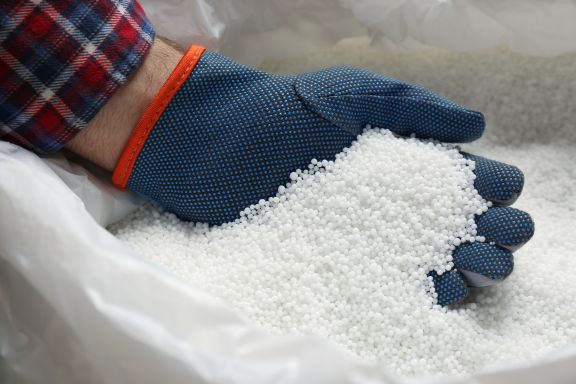Household chemicals, such as ammonium sulfate, and dogs don’t mix very well. Each year, dogs are accidentally poisoned when they gain access to chemicals at home, some of which can be extremely toxic. It seems as if dogs are not able to help themselves! They are curious about something that may be enticing to them, and they eat it! But what happens if a dog eats ammonium sulfate?
Connect with a verified veterinarian in minutes. Licensed vets are available 24/7 to answer your questions. No need to worry about your furry family member.
Has your dog eaten ammonium sulfate? Are you worried the ammonium sulfate will make your dog sick? If so, you’ve come to the right place. We understand it can be scary when your dog eats something like this.
We’ve gathered information about ammonium sulfate and whether it can make a dog sick. Let’s get started!

What is Ammonium Sulfate?
Ammonium sulfate is an inorganic salt that’s used in a number of ways. One of the most common uses of ammonium sulfate is as a fertilizer; it contains 21% nitrogen and 24% sulfur.
Ammonium sulfate is most often used as a fertilizer for alkaline soils. It’s also used as an agricultural spray to deliver insecticides, herbicides, and fungicides. What’s more, this substance is also used as an acidity regulator in flour and bread! This is considered safe and not toxic to humans or pets.
Another interesting use of ammonium sulfate is in the treatment of drinking water. The chemical is used in combination with chlorine to generate monochloramine for disinfection.
While ammonium sulfate can be a hazardous material, what happens if a dog eats ammonium sulfate?
Ammonium Sulfate & Dogs
Ammonium sulfate in the home is usually used as a fertilizer. In that case, the fertilizer may also be used in addition to other chemicals, such as insecticides, herbicides, and more. Ammonium sulfate alone or combined with other chemicals can be toxic to dogs.

Review symptoms, medications & behavior to keep your pets healthy with a Vet Online in just minutes.
Ask a Vet Live NowSymptoms of Ammonium Sulfate Ingestion in Dogs
You may notice these symptoms if your dog has eaten ammonium sulfate:
- Excessive salivation
- Fever
- Breathing difficulties
- Urination
- Defecation
- Lack of coordination
- Anxiety
- Tremors
- Blue or brown mucus membranes
- Seizures
- Death
If you notice any of these symptoms in your dog, call the vet immediately. This is an emergency.
Don’t wait to see if your dog’s symptoms improve or worsen. Your dog needs to see the vet ASAP, as ammonium sulfate can cause death.
Treatment of Ammonium Sulfate Ingestion in Dogs
The vet will first work to treat ammonium sulfate toxicity by stabilizing your dog’s condition. This includes monitoring your fur baby’s heart rate and breathing. The vet may also give your dog medications to increase urination and defecation to remove the toxin from your dog’s system more quickly. They may also give your dog medications that work to protect his GI tract, along with poison absorbents and treatment of any skin irritation your dog may have suffered.
The prognosis is best for dogs who receive prompt medical treatment after ingesting ammonium sulfate. If your dog only ate a little bit of this substance, he should be better in a few days. However, dogs that eat a larger amount of ammonium sulfate may need to be treated for the rest of their lives.
In the future, it’s best to keep ammonium sulfate and all household chemicals out of your dog’s reach. You’ll both be happier for it!
Connect with a verified veterinarian in minutes. Licensed vets are available 24/7 to answer your questions. No need to worry about your furry family member.

Kim
Kim is a talented author, who loves animals especially dogs. She engaged in writing books and articles relating to animals a decade ago. Kim resides in Chicago with her husband and son. The family is the proud owner of a dog and a parrot (Jack and Lily). Kim wanted more than these two pets, but her husband put his foot down... She often visits elementary schools to talk to the kids about what she learned about pets and how they could learn from them.
Review symptoms, medications & behavior to keep your pets healthy with a Vet Online in just minutes.
Ask a Vet Live Now




